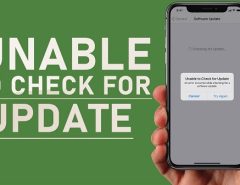Adware that sends unsolicited advertising, dangerous Trojans can steal passwords or take control of the PC, attacks on privacy via Social Network: the battle for digital security at the time of Data gate has no boundaries. But it is not necessary to bother Data gate and the darkest areas of the Web to offer cybercriminals an access point to our PC. To help Internet users avoid dangerous traps and to safeguard privacy and security, ESET NOD32 researchers, one of the world’s leading anti-virus manufacturers, have developed the IT Security Pentalogue, a series of useful tips and suggestions to follow for the benefit of the common user.
1. Use a limited PC access account
Generally, it is better to use a limited account, especially when surfing the Internet: users who access the PC with an administrator account have the power to change all the settings on the computer but expose the PC too much higher risks. Access to the PC through a limited account certainly limits the activities, but preserves more from attacks by hackers, not being able to change the settings of the computer. A possible intrusion, for example exploiting a browser vulnerability, would, in this case, have much more limited effects.
2. Beware of strangers on social networks
We live in a period where everything on the web is by definition “social”: attention, however, because cybercriminals can hide behind a friendly approach. We must, therefore, avoid accepting friends on Facebook from unknown people and take care not to publish your phone number or email address, because the new feature of Facebook Graph Search makes this information accessible to everyone. In addition, we must always be very cautious to click on the links we receive: the malware is transmitted more often through social networks and the abbreviated URL that in theory proposes a hilarious video in practice could hide a dangerous malware.
Check This Out: How long you do not change your password?
3. Keep the browser clean
Many users mistakenly think of their browser as a window on the web, customizable at will: just that window could, however, be used by cybercriminals as a key to access the PC. It is therefore important that you do not save any password or personal information on your browser and do not download any doubtful plug-ins. Many users mistakenly believe that a plug-in is less risky than an executable file, but over the past year, ESET researchers have detected a dizzying growth of infected plug-ins.
4. Update the software more frequently
Any warning appearing on PC power up is probably important, as boring and annoying as it may seem. It is important to update your PC often manually, especially if you notice a slowness of the device, make sure you have good antivirus software and that Windows Update is always active. It is also advisable to install updates every time the PC is switched on and off: these updates rarely serve to add new features but prevent the PC from being victimized by a cyber attack.
5. Never trust the infallible passwords
Even a very long password with random numbers, letters, and special characters may not be enough to preserve the security of an account. In recent years the cybercrime approach has changed a lot and high-profile attacks have increased to Internet giants such as Adobe, LinkedIn and Ever Note, which have been stolen by millions of encrypted passwords. The worst risk that everyone runs is to use “real” email addresses and the same password on multiple sites. Each password can be decrypted, so it is better to use two-factor authentication systems. When registering for online services, it is advisable to use a “disposable” email address and a different password for each of these, or use a password management service such as the Last Pass.
Tags: golden rules, Internet, PC access, software, surfing




Leave a Reply